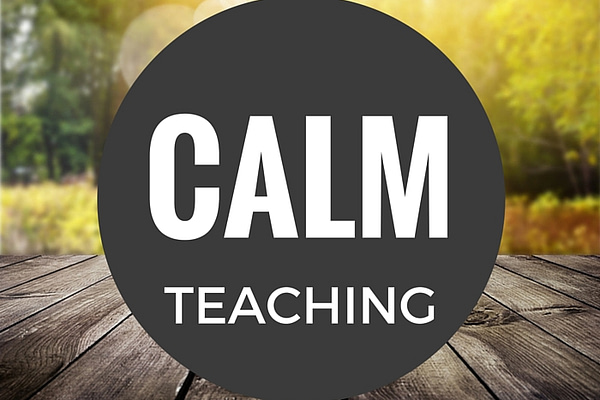My husband (Dave) and I are preparing to participate in a parent/teacher conference about our son (Luke) for the first time. Dave brought home a couple of forms that we needed to fill out about Luke, that included us doing some at-home assessment.
I told Luke we were going to do some games and some experiments and that I needed his help. Many of the questions asked about things that I wasn't sure as to Luke's current level of proficiency.
Sample questions
The questions went something like this:
_____ can jump forward six inches with both feet.
[ ] Yes [ ] Sometimes [ ] No
_____ can follow a three-part set of instructions without being reminded of any of the steps (such as move your jacket from the floor to the couch, bring me the red book, and put your cup in the sink…)
[ ] Yes [ ] Sometimes [ ] No
Careful consideration in assessment
I was conscientious as I filled in each answer. I didn't want us to be those parents who over-inflate our child's abilities in our own minds.
The directions were quite clear and they seemed to predict my questions about how to rank Luke's skills.
Verifying skills
After I completed the assessment, I kept reflecting on how many of the items I had to double check (by having Luke perform whatever skill it was asking whether or not he knew how to do).
I'm one of his parents and one would think I would already know such things.
How much more, then, is it likely that we as faculty aren't always able to gauge where our students are in terms of their progression in our classes?
Motivation vs competence
Dave and I also joked quite a bit while completing the assessment about the number of times that we were confused about whether we should answer the questions as to whether or not he can do a particular task, or whether or not he will.
How much of the time are we able to assess whether it is a lack of competence that is holding our students back, or whether or not the problem is with motivation?
The Mager Six Pack
The whole experience had me thinking, once again, about my most-often consulted set of books in my home office: The Mager Six Pack.
I was first introduced to Mager's books in the late 90s, when the third edition of the Mager Six Pack was published.
Mager's writing is more geared toward an audience doing any kind of instruction, not necessarily specifically toward those teaching in a higher education context.
However, this does not present a weakness, as far as I'm considered. I'm still amazed that a couple of decades later and in any kind of an educational context, Mager has much to offer.
The title of the first book in the series speaks for itself. I've used it extensively in teaching managers how to figure out what to do when their employees aren't meeting expectations in some way.
Often, a company asks a training department to offer some kind of workshop to fix a performance problem, when it is way down on Mager's list of steps to potentially take, well after having looked at other potential reasons for things not going as they should.
Preparing Instructional Objectives
This would be the place I would have all teachers in higher ed start, as it relates to Mager's work. I just saw that you can purchase this title on Amazon for $4.00, so it is also an affordable way to get started with Mager's work, if you decide not to purchase the entire Six Pack.
Those of us who are fans of the Choose Your Own Adventure books will like Mager's writing approach in this book. He presents information to you along the way and then gives you little quizzes to assess your learning. He has you turn to a specific page, based on how you answer a question.
If you wind up turning to the page that shows you knew your stuff, he has you skip over additional review. If the page you turned to shows that you need a bit more support in learning about this aspect of instructional objectives, he provides further examples.
Measuring Instructional Results
The prior title looked at how to craft instructional objectives. This book explores how to assess learning and the attainment of those outcomes.
I probably need to pull this one off the shelf more often than I have, as it has checklists and other resources to help you when working to assess learning outcomes.
How to Turn Learners On… Without Turning Them Off: Ways to Ignite Interest in Learning
As I shared with the example of Luke not necessarily always wanting to perform a particular task, this isn't only a problem when relating to almost-four year-olds… Mager gives insight in this title about how to help motivate learners.
Goal Analysis: How to Clarify Your Goals So You Can Actually Achieve Them
Mager leverages his writing approach in this title, as he gives you over 50 practice exercises to help you with goal setting.
Again, this is a title I could probably pull out more often. This book describes itself as a practical resource for instructional designers. There are all sorts of instructional methods out there, but Mager focuses on proven ones that work and will enhance your teaching.
My recommendation
It looks like the original publisher of the Mager Six Pack is no longer printing them. However, I saw in the reviews that the Mager Consortium still has them available.
Mager does have a playful writing style that may be a source of irritation for some academics. If you can get past that, he does provide a structure for his books that focus on the concrete and practical side of instruction.
I hope you'll consider adding the Mager Six Pack to your instructional library. While you're at it, spend some time thinking about ways that you are assessing your students' learning throughout your course and approaches you're using to address motivation throughout the semester.
[reminder]Are there any books on your higher ed bookshelf that you have referenced more than any other over the years?[/reminder]



Hi Bonni,
As someone who is relatively new to academia, I’m so glad you asked this question and hope that others will give suggestions about books they’ve found useful in teaching. So far, I have gotten the more use out of Stephen Brookfield’s The Skillful Teacher. I appreciate the authentic voice of the writing and the practical tips. I just put The Mager series on my Wish List and hope to get access to it soon. Thanks for the great suggestions, as always!